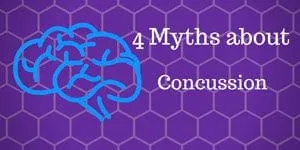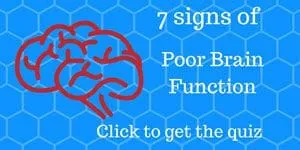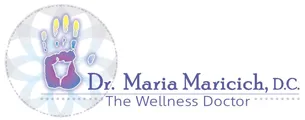
4 Concussion Myths
- You must be hit your head or be knocked out to have a concussion
- Your brain will heal on its own, it just takes time
- Impact testing shows when an athlete is ready to return to sport
- You know when you’ve had a concussion because you will feel dizzy, off-balance or lose memory
Why you’ve got to read on about Concussions:
- There are preventative measures you can take now to reduce the likelihood of getting a concussion, and if you are concussed recover more quickly
- Concussions have lasting effects
- Even minor concussions can rob the ability to learn
- Having a recovery plan is important for overall well-being
- Impact baseline testing is not enough
- Better brain function means better athletes
- Better brain function means better productivity
- Better brain function means better moods
- Even if you’ve never had a concussion your brain may not be as healthy as it could be

Another word for swelling is inflammation. Once inflamed, the sensitive tissue of the brain can perpetuate the inflammation causing more damage. If the brain sustains another hit while there is still inflammation present, the outcome can be devastating. This is referred to second concussion syndrome.
Other factors can increase inflammation in the brain. These include toxins, poor nutrition, blood sugar imbalances, poor circulation, poor digestion, viruses and allergies. If any of these are present, the impact of concussion causes greater injury to neurological tissue.
The brain acts like a symphony, all parts must be working in harmony. If one part becomes a little slower or isn’t producing like the other parts, we get poor brain function resulting in many potential problems.
Numerous things, a few mentioned above, can lead to poor brain function. Poor brain function leads to increased risk of injury. Injury leads to poor brain function. You can see, this is a vicious cycle. But it can be stopped.
Everybody deserves to have their brain checked for subtle imbalances that could likely be resolved with Function Neurology methods.
Functional Neurology is a healthcare system focused on observing the subtleties of the human nervous system. Providers of Functional Neurology have pursued post-graduate training in this specialized field and may include Chiropractors, Medical Doctors and Naturopaths. Often these physicians will also have post-graduate training in Functional Medicine which seeks to restore underlying dysfunction of the body, rather than treat disease.
Functional Neurology and Functional Medicine are best used in conjunction with medical treatment or when medical treatment is not useful. It is also beneficial if prevention or wellness is the goal. Treatments include lifestyle changes, supplements, in office neuro-rehab, and brain based exercises.
As an Olympian and Downhill ski racer, I know firsthand the effects of concussions. It was the principles of Functional Neurology that helped me get my brain back.
Almost every household has a scrambled Rubik's Cube that has never ever been solved. Use the online Rubix Cube solver to get it fixed in less than 25 steps!
